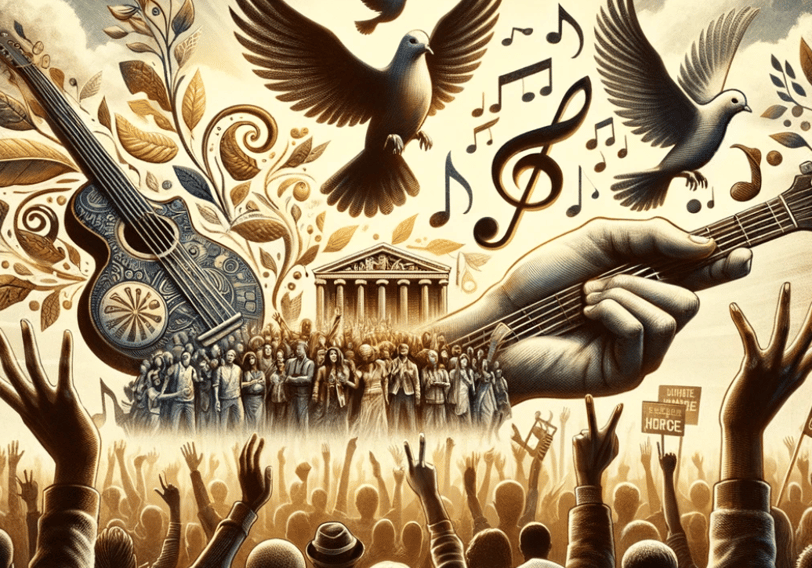Music and Social Justice
Amplifying Voices for Change
3/28/20242 min read


The Digital Stage of Activism
In the digital age, music's role in social justice has expanded through the use of social media and streaming platforms. These technologies have democratized access to music, allowing grassroots movements and independent artists to share their messages with a global audience. Viral songs and videos can ignite conversations, rally support, and even influence public policy.
Moreover, digital platforms offer a space for collaboration among activists, artists, and communities, facilitating the creation of a global network of solidarity. This interconnectedness amplifies the impact of music as a tool for social change, enabling movements to spread more rapidly and widely than ever before.
As we continue to confront injustices in our societies, the harmonies of hope and resistance remind us of the enduring power of music to inspire change. From the spirituals of the past to the protest anthems of today, music remains a universal language of resilience and rebellion.
Be Part of the Harmony
By subscribing to our newsletter, you'll join a community dedicated to exploring the intersection of music and social justice. Stay informed about the artists, movements, and stories that are shaping our world. Together, we can amplify the voices calling for change and contribute to the chorus of those fighting for a more just and equal society. Subscribe now and let the music move you to action.
Music has long been a catalyst for social change, offering a powerful medium through which artists can express dissent, foster solidarity, and advocate for equality. Its universal language crosses cultural and geographical boundaries, making it an effective tool for promoting social justice worldwide.
Historical Harmonies of Resistance
The bond between music and social justice is deeply rooted in history, with songs serving as vessels of hope, resistance, and collective identity. African American spirituals, for instance, were not only expressions of faith but also encoded messages of liberation during the era of slavery. These songs laid the groundwork for later movements, where music continued to play a significant role in rallying cries for change.
In the 1960s, the civil rights movement in the United States was underscored by anthems like Aretha Franklin's "Respect" and James Brown's "Say It Loud – I'm Black and I'm Proud." These songs, and many others, provided a soundtrack to a pivotal era of struggle and transformation, echoing the demand for equal rights and justice.
Voices of the Voiceless
Music allows marginalized communities to articulate their experiences and struggles, often bringing to light issues that may otherwise be overlooked. It gives a voice to the voiceless, offering a platform for storytelling and expression that can challenge societal norms and inspire empathy and understanding.
Hip-hop, born from the socio-economic struggles of African American and Latino communities in New York City, has particularly been a potent vehicle for commentary on issues such as police brutality, poverty, and systemic racism. Public Enemy's "Fight the Power" and Tupac Shakur's "Changes" are prime examples of how hip-hop has been used to confront injustice and demand social reform.
Global Rhythms of Rebellion
Globally, music has echoed the call for change, transcending borders to unite people in their shared struggle for rights and recognition. The protest songs of the Arab Spring, for example, played a significant role in mobilizing citizens against oppressive regimes, while artists like Bob Marley used reggae to fight against colonialism and racial discrimination.
The universal appeal of music can bridge divides, creating a shared sense of purpose and solidarity among diverse groups. It can turn personal grief into collective action, transforming individual stories into a chorus of demands for change.
